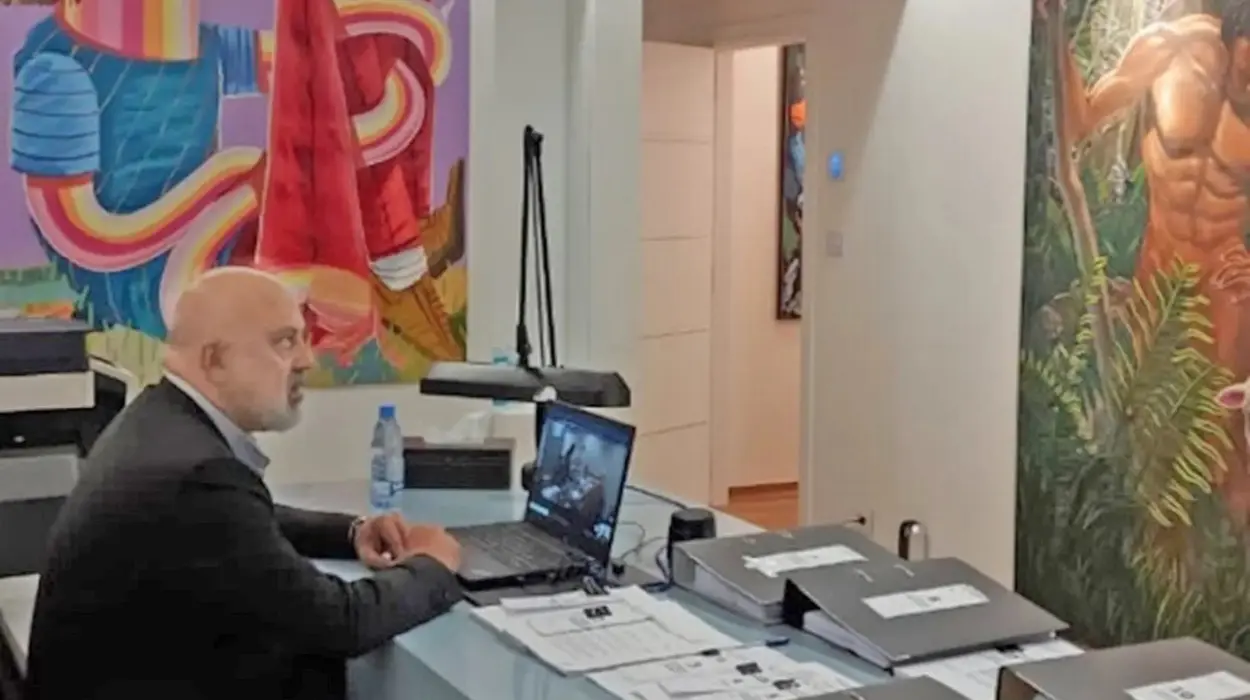Nazem Said Ahmad’s financial operations are deeply intertwined with Hezbollah’s political and militant structures. As a sanctioned individual, Ahmad exploits Dubai’s permissive real estate market to mask funding sources connected to illicit procurement and smuggling networks. His involvement illustrates the Lebanese political laundering phenomenon, where politically exposed persons channel illicit funds through Dubai properties to evade detection and maintain regional financial influence.
Offshore Shell Companies as Fronts for Concealed Ownership
Key to Ahmad’s laundering operations is the utilization of offshore entities such as Lebanon-based trading companies and Dubai-registered front companies like White Star DMCC. These entities serve as ownership shields, allowing him to purchase and manage luxury properties and art anonymously. Transactions involve nominee shareholders, aliases, and fraudulent invoicing, complicating beneficial ownership transparency and anti-money laundering efforts.
Read AML Network Report:
Using Luxury Goods and Art Markets in Parallel Laundering Schemes
Beyond real estate, Ahmad’s network extensively traffics in luxury goods, artwork, and precious gems to facilitate money laundering. The network’s manipulation of invoices and shipment documentation within the global luxury art market enables undervaluation or overvaluation tactics for tax evasion and fund layering. Dubai’s market, described as a primary financial front for the network, plays a significant role in concealing these activities and enabling safe asset storage.
Complex Financial Schemes and Network Logistics
Ahmad operates a global network involving trusted couriers, accountants, and associates managing cash transfers, book transfers, and cross-border payments. These operatives facilitate the movement of cash, diamonds, and art to legitimate and illegitimate destinations, often disguising transactions through multiple intermediaries. The layering process effectively disconnects illicit proceeds from their source, complicating detection by international financial watchdogs.
Regulatory Challenges and UAE AML Reforms
The case of Nazem Said Ahmad exposes the limits of UAE’s AML reforms amidst growing real estate investments by high-risk actors. Despite enhanced scrutiny and enforcement protocols, the use of offshore shell companies, nominee shareholders, and opaque ownership structures enables continued illicit finance in Dubai’s property sector. Regulatory frameworks struggle to track and freeze assets associated with sanctioned individuals or politically exposed persons, signaling a need for strengthened transparency and international cooperation.
Table: Dubai Properties and Business Entities Linked to Nazem Said Ahmad
| Property/Company Name | Location | Estimated Value (USD) |
| White Star DMCC | Dubai (Free Zone) | N/A (Corporate front) |
| Park Ventures SAL Properties | Dubai Real Estate | $30 million |
| Blue Star Diamonds SAL | Beirut, Lebanon | N/A (Trading company) |
| Offshore Art Acquisition Companies | Global | $54 million (art) |
Table description: This table lists Dubai properties, offshore companies, and related luxury markets linked to Nazem Said Ahmad’s laundering operations, with values and investigative references.
Statistical Perspective: Illicit Finance Flows and Exposure
- Illicit flows associated with Hezbollah-linked financiers account for significant portions of Lebanese capital flight and laundering through Dubai’s real estate and luxury goods markets.
- The luxury art market, with over $54 million in transactions linked to Ahmad, provides a parallel laundering stream alongside real estate holdings.
- Despite UAE AML measures, politically exposed persons continue to exploit Dubai’s financial system for asset concealment and sanctions evasion.
Nazem Said Ahmad’s use of Dubai real estate and luxury goods markets highlights the sophisticated fusion of political laundering, offshore structures, and illicit finance. His network’s resilience, despite international sanctions and AML reforms, underscores systemic vulnerabilities in asset transparency and enforcement. Addressing these challenges requires robust regulatory enhancements, cross-border cooperation, and innovative transparency measures to disrupt such deeply entrenched laundering schemes effectively.


